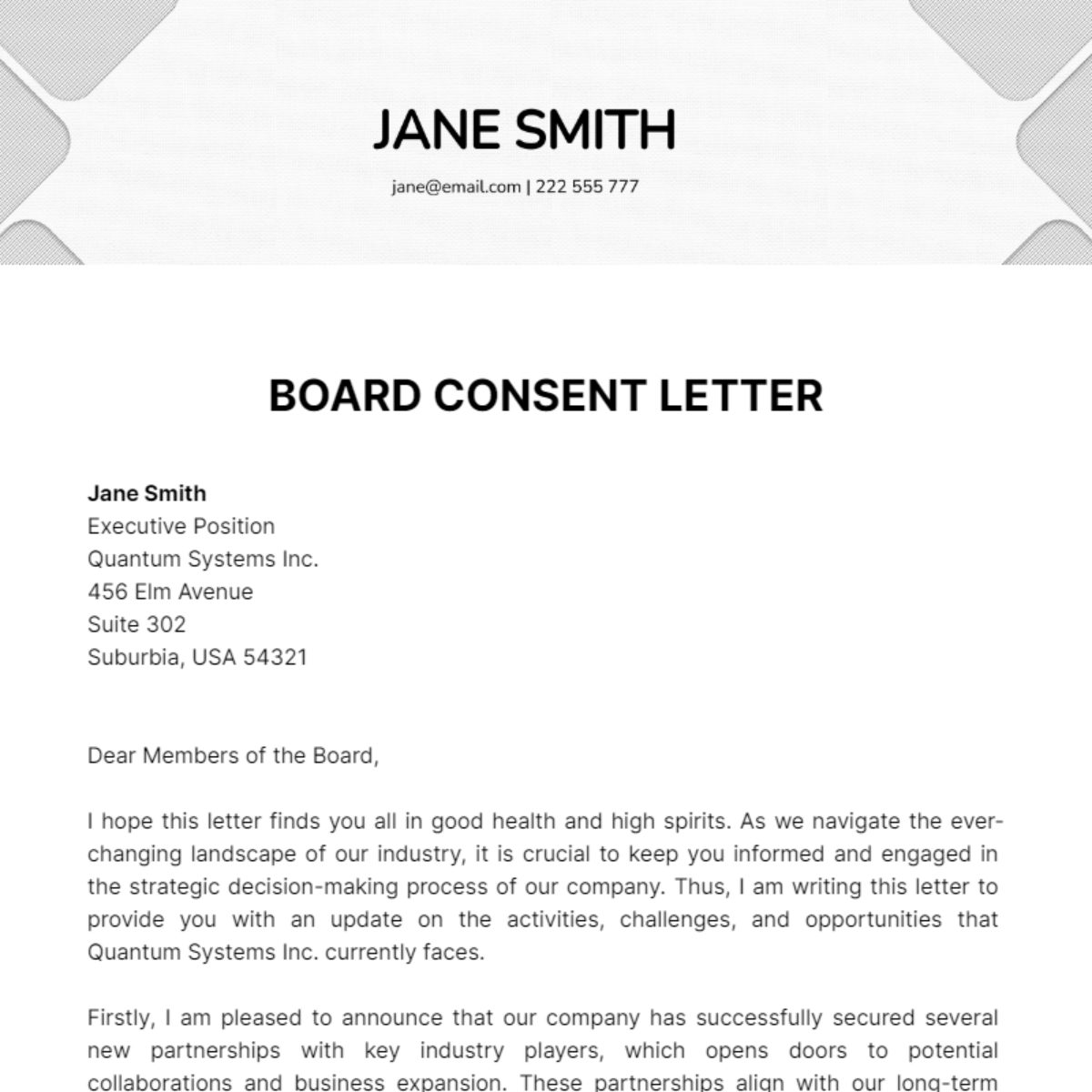
Enhance Communication with Board Members with Documents Prepared Using Template.net's Free Board Letter Templates. Each Sample Contains Professionally Written Formal Content to Welcome New Members, Resignation, and Application References to Nonprofit Organizations, Schools, and More. Whether Long or Short Content, You Can Find a Wide Selection That You Can Download and Edit Easily!
Get Access to All Letters Templates Instant Download
Board Consent Letter Template
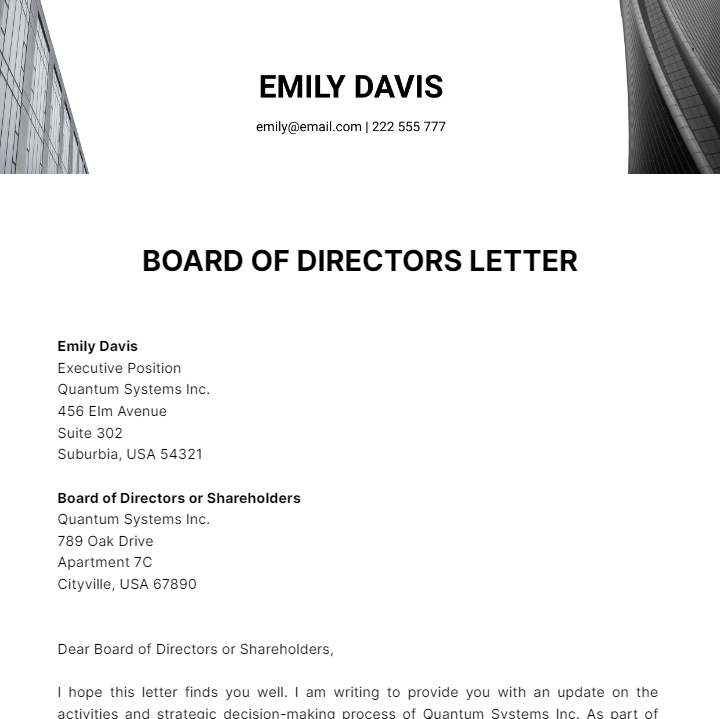
Board Of Directors Letter Template
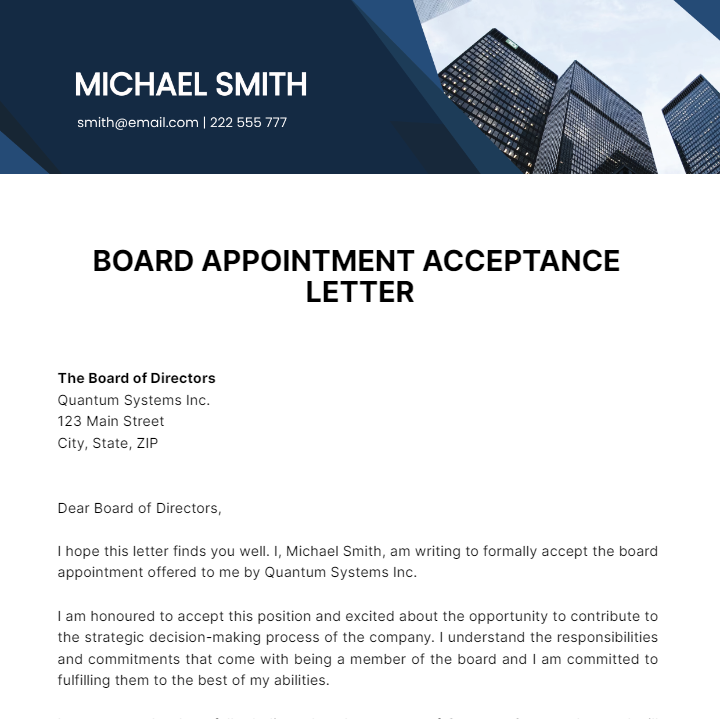
Board Appointment Acceptance Letter Template
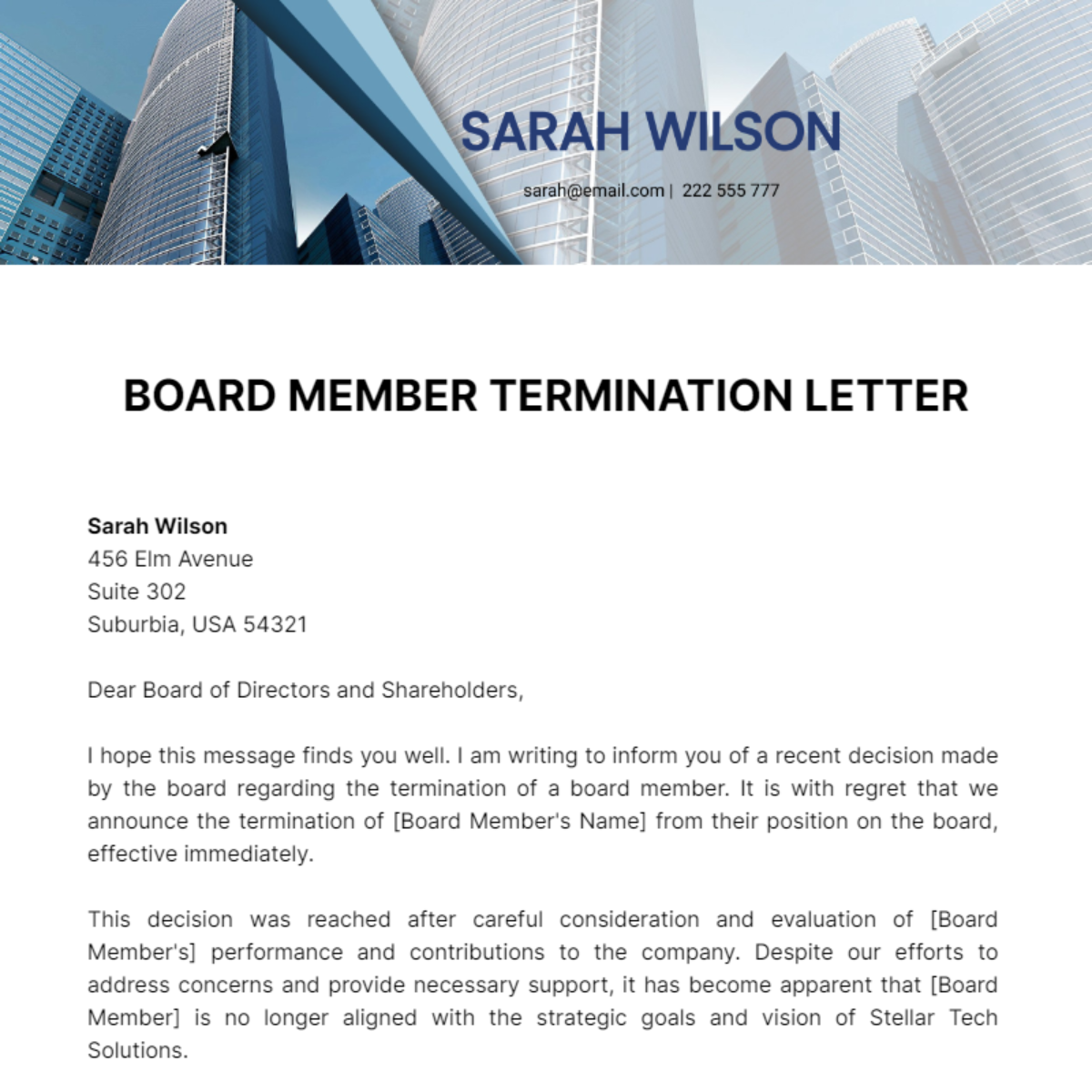
Board Member Termination Letter Template
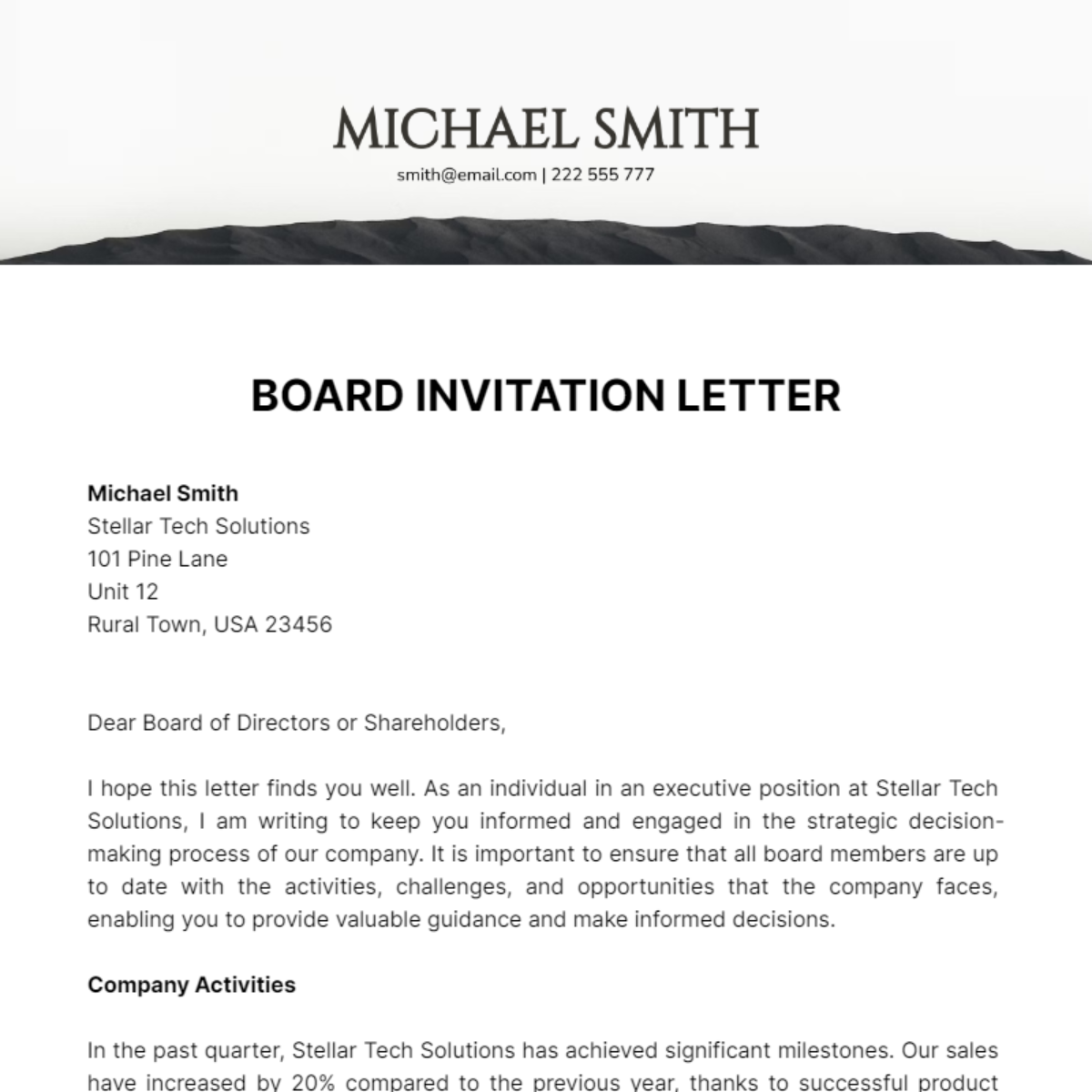
Board Invitation Letter Template
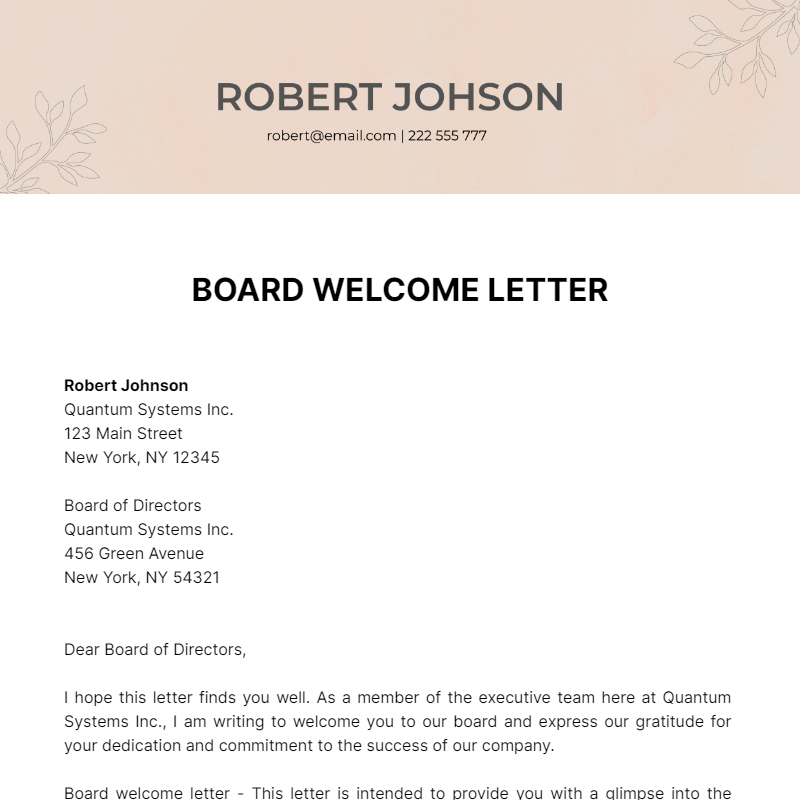
Board Welcome Letter Template

Board Recommendation Letter Template
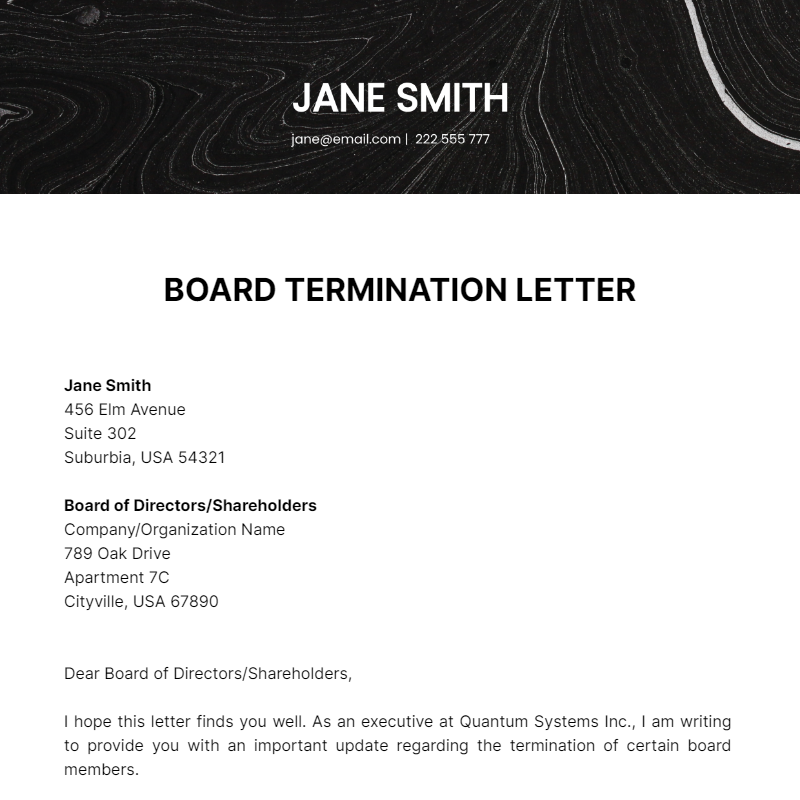
Board Termination Letter Template
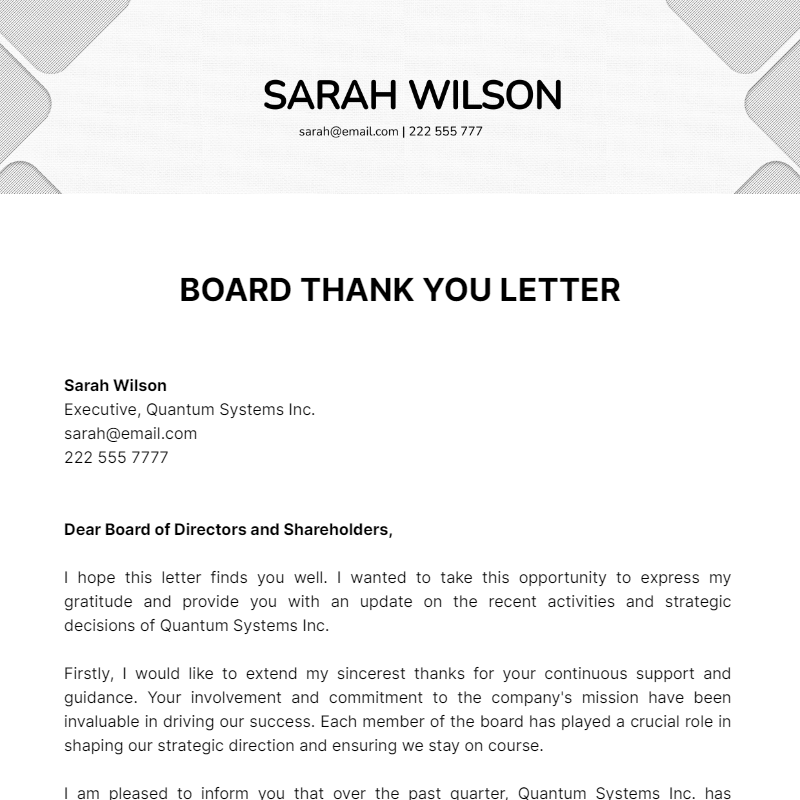
Board Thank You Letter Template
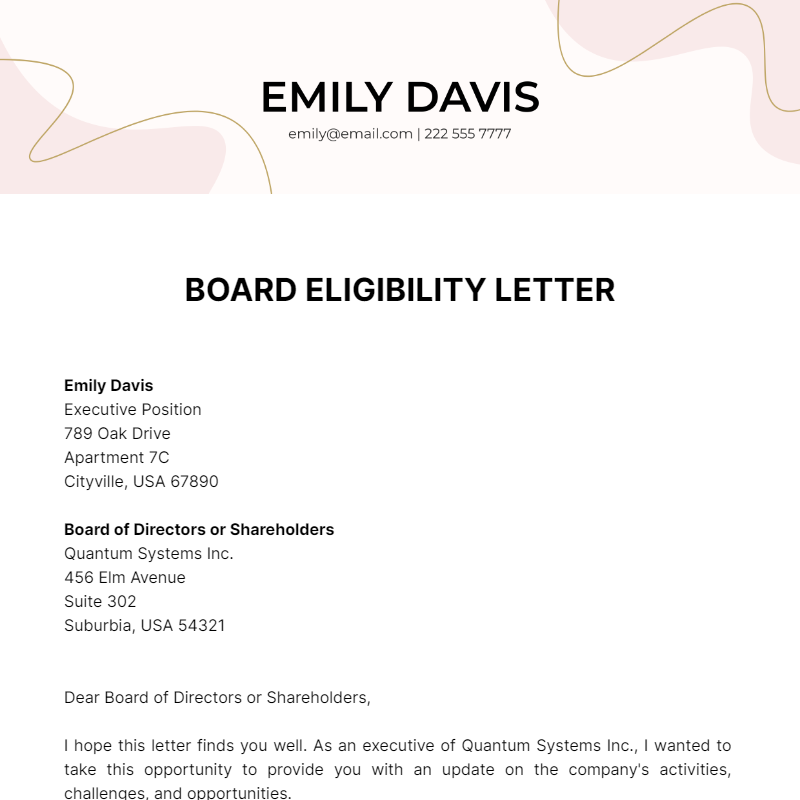
Board Eligibility Letter Template
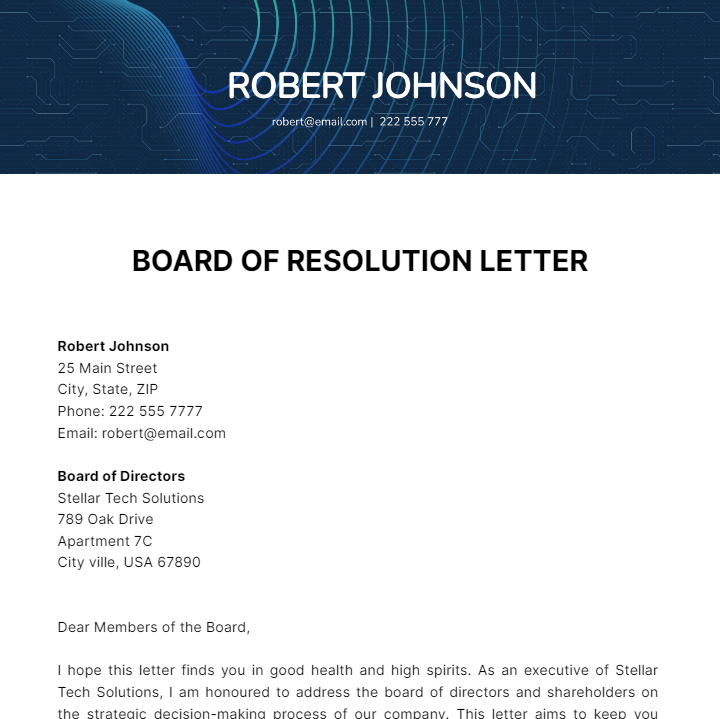
Board Of Resolution Letter Template
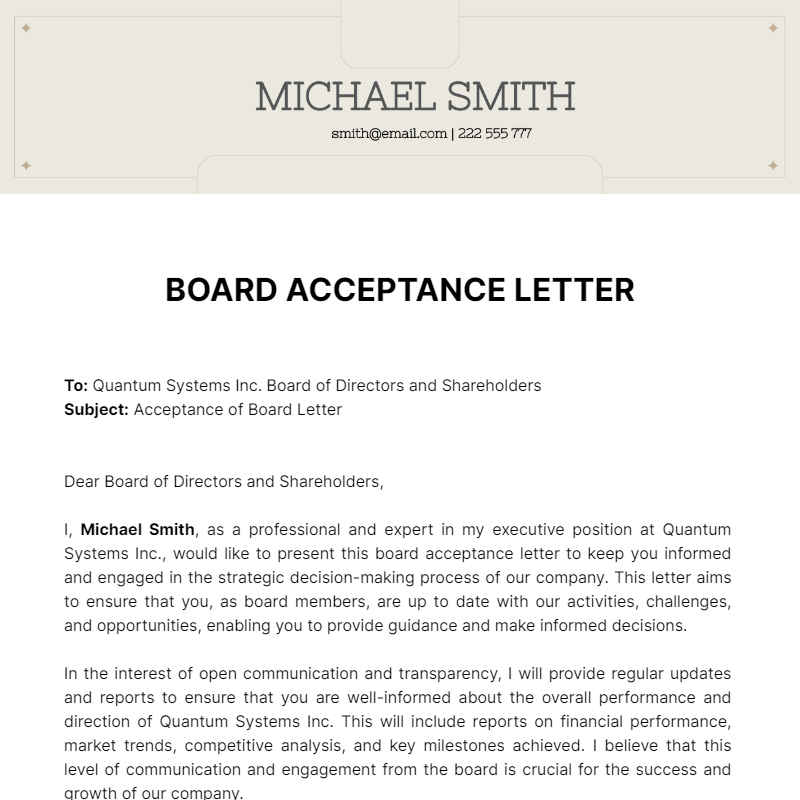
Board Acceptance Letter Template
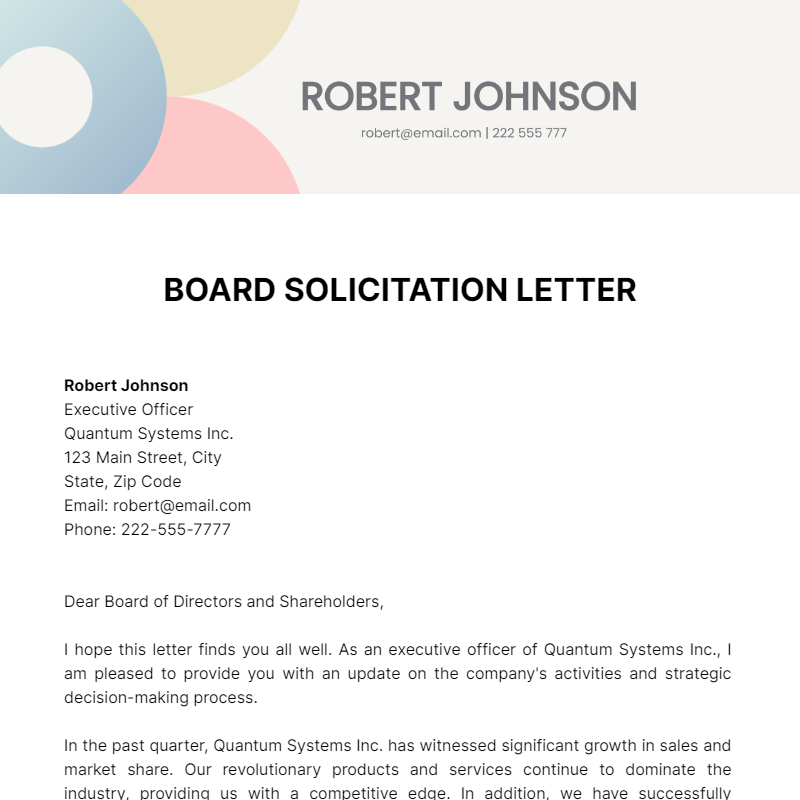
Board Solicitation Letter Template
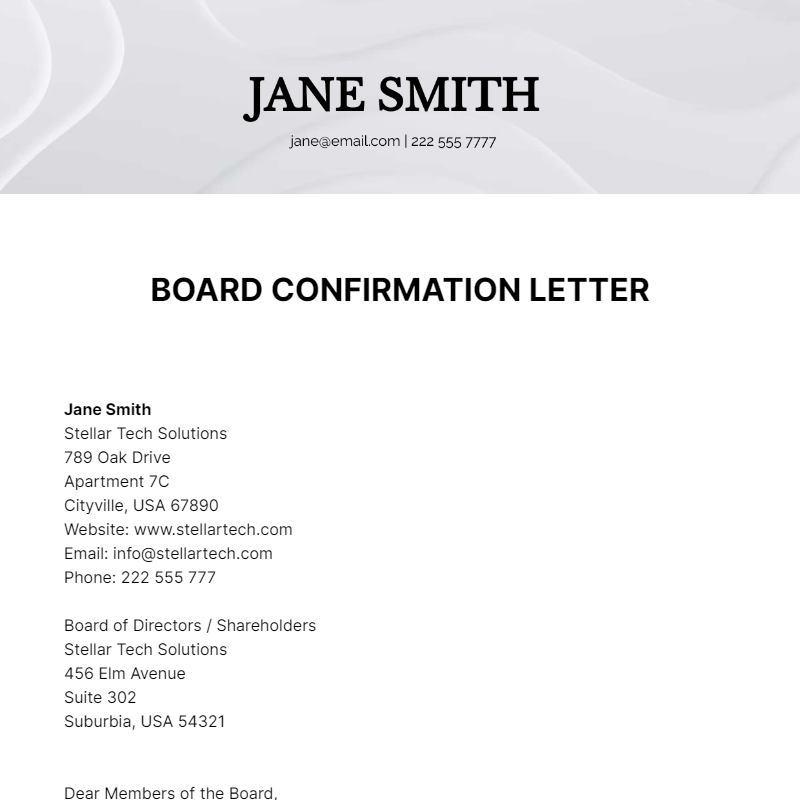
Board Confirmation Letter Template
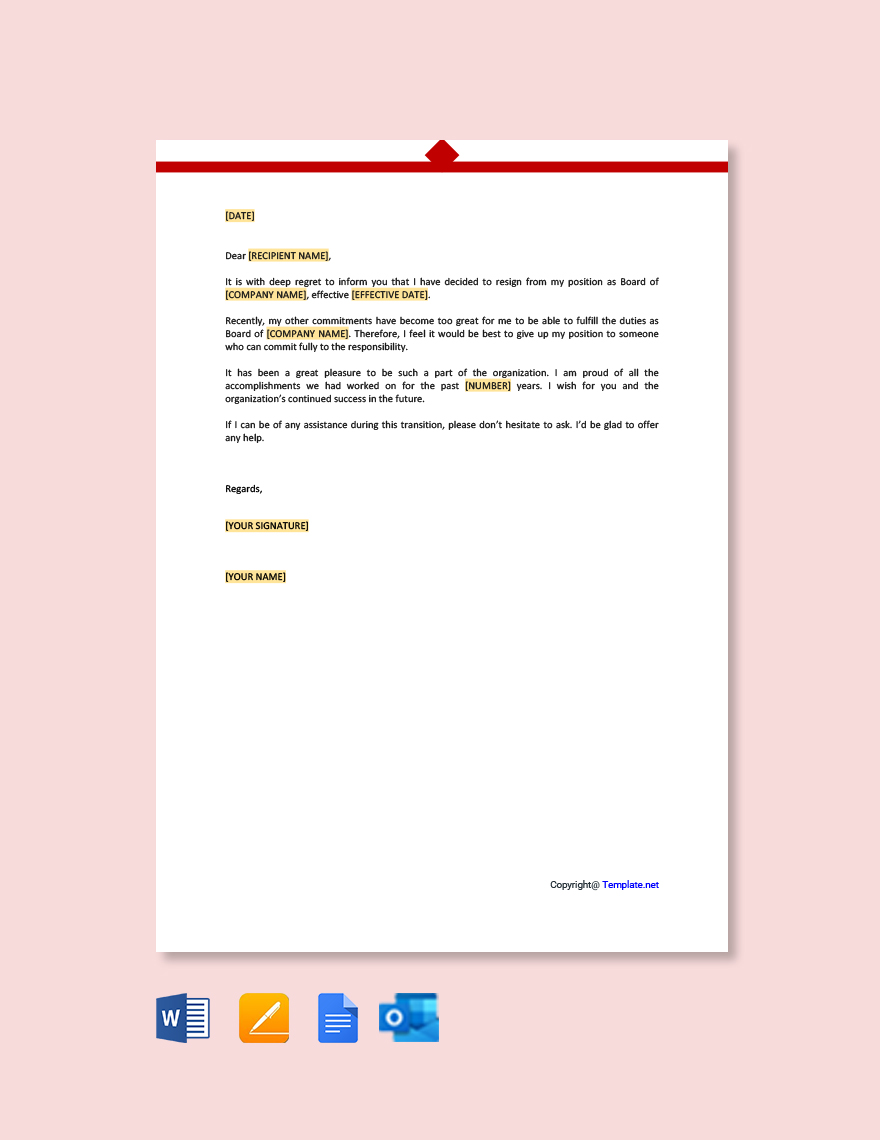
Non Profit Board Resignation Letter
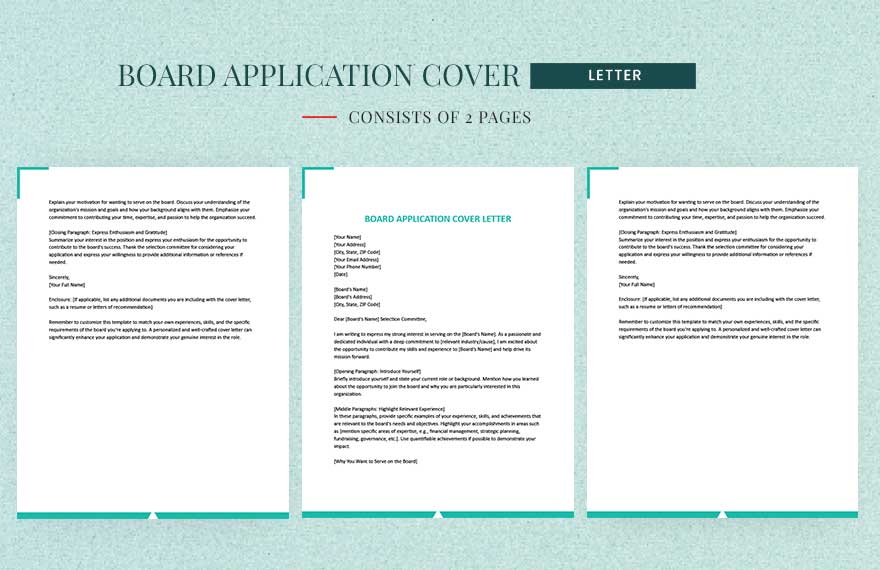
Board Application Cover Letter
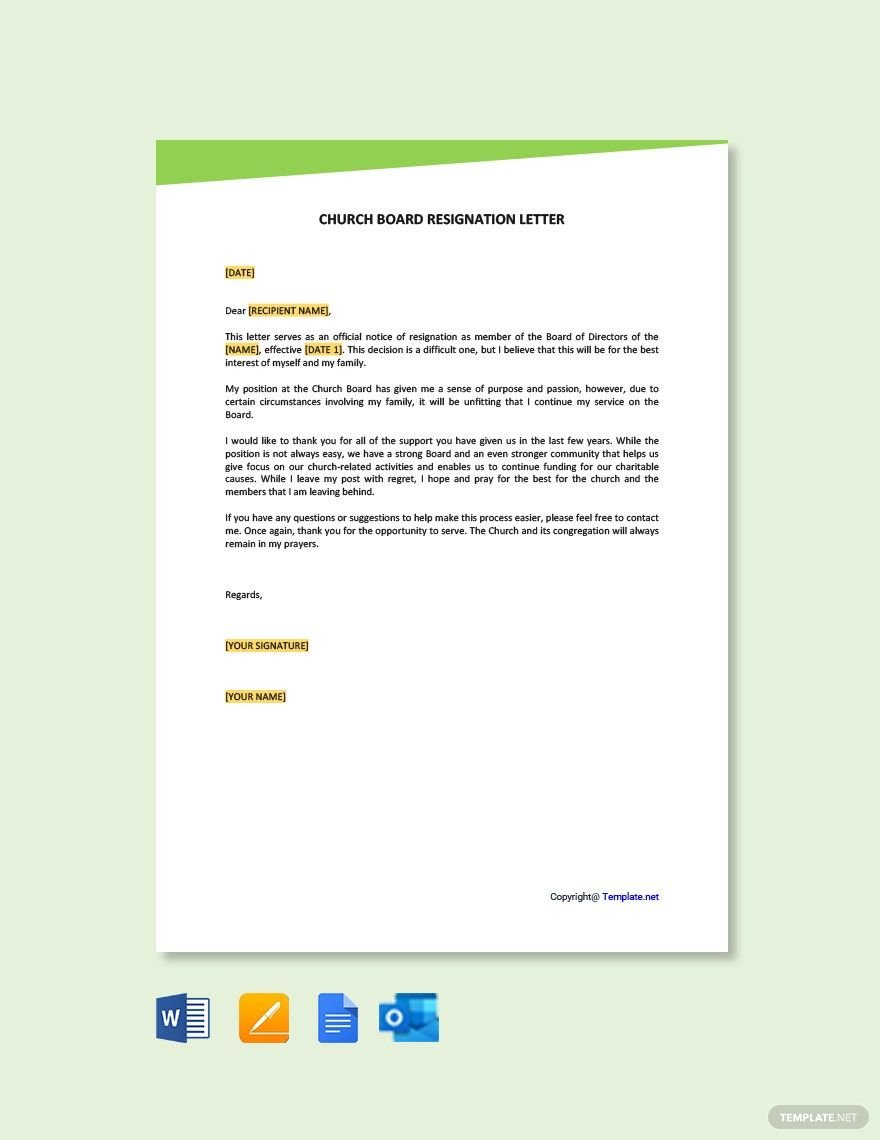
Church Board Resignation Letter
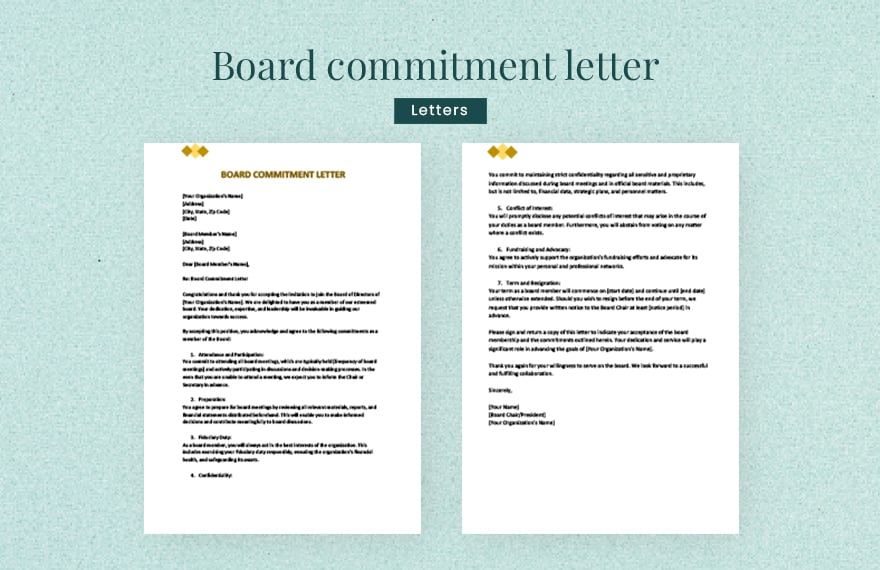
Board commitment letter
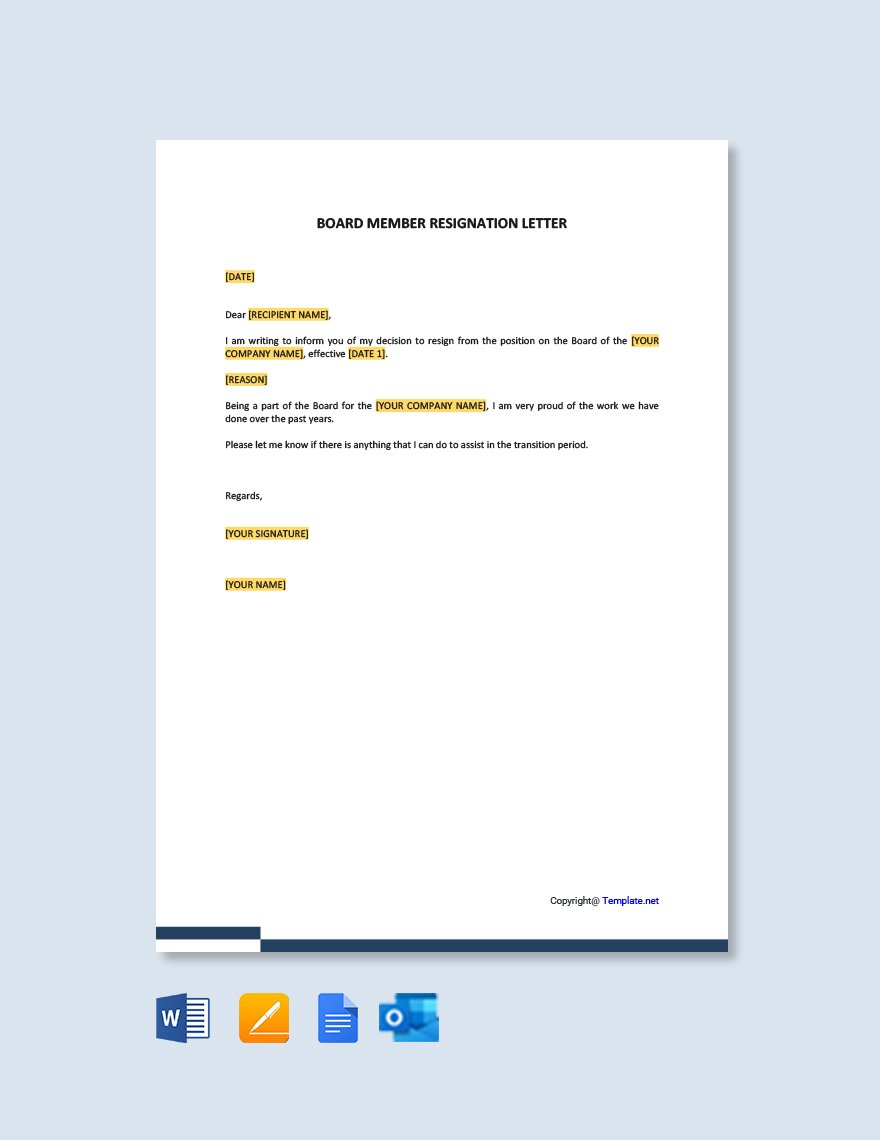
Board Member Resignation Letter
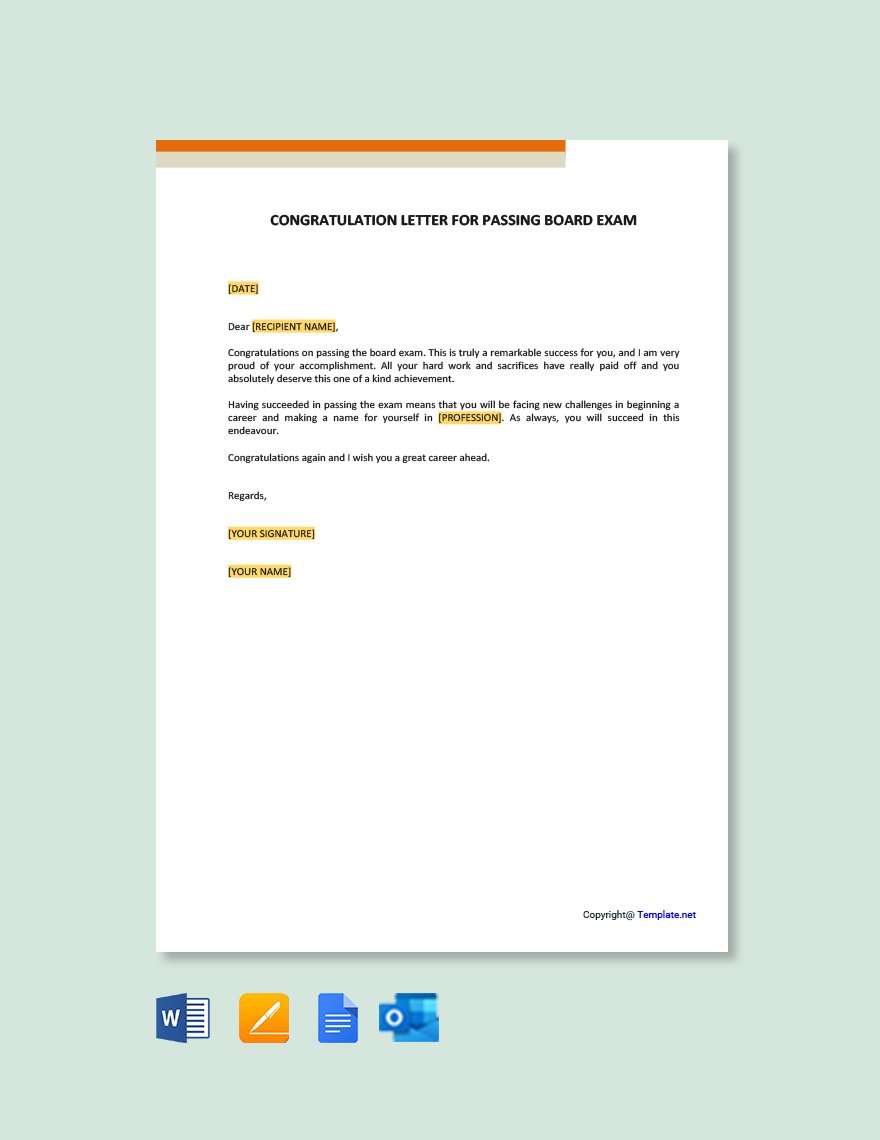
Congratulation Letter for Passing Board Exam Template
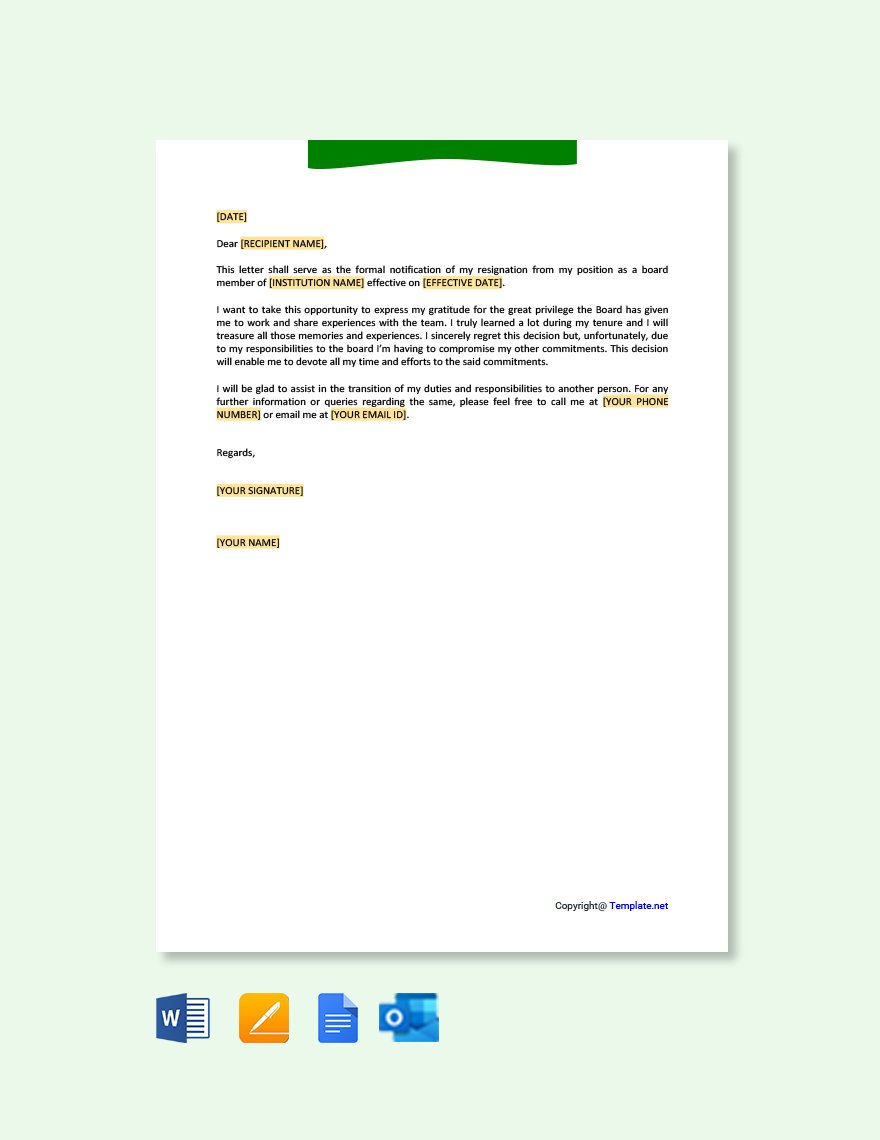
School Board Resignation Letter
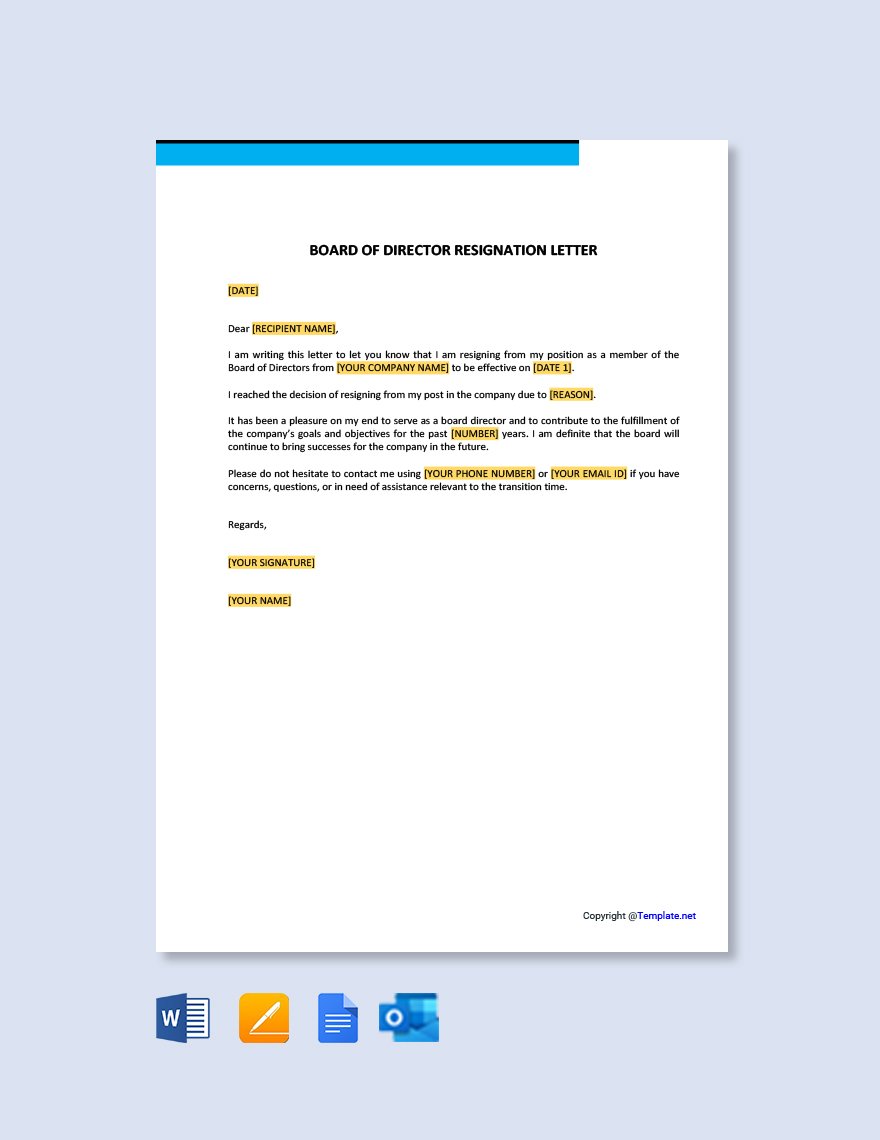
Board Of Director Resignation Letter
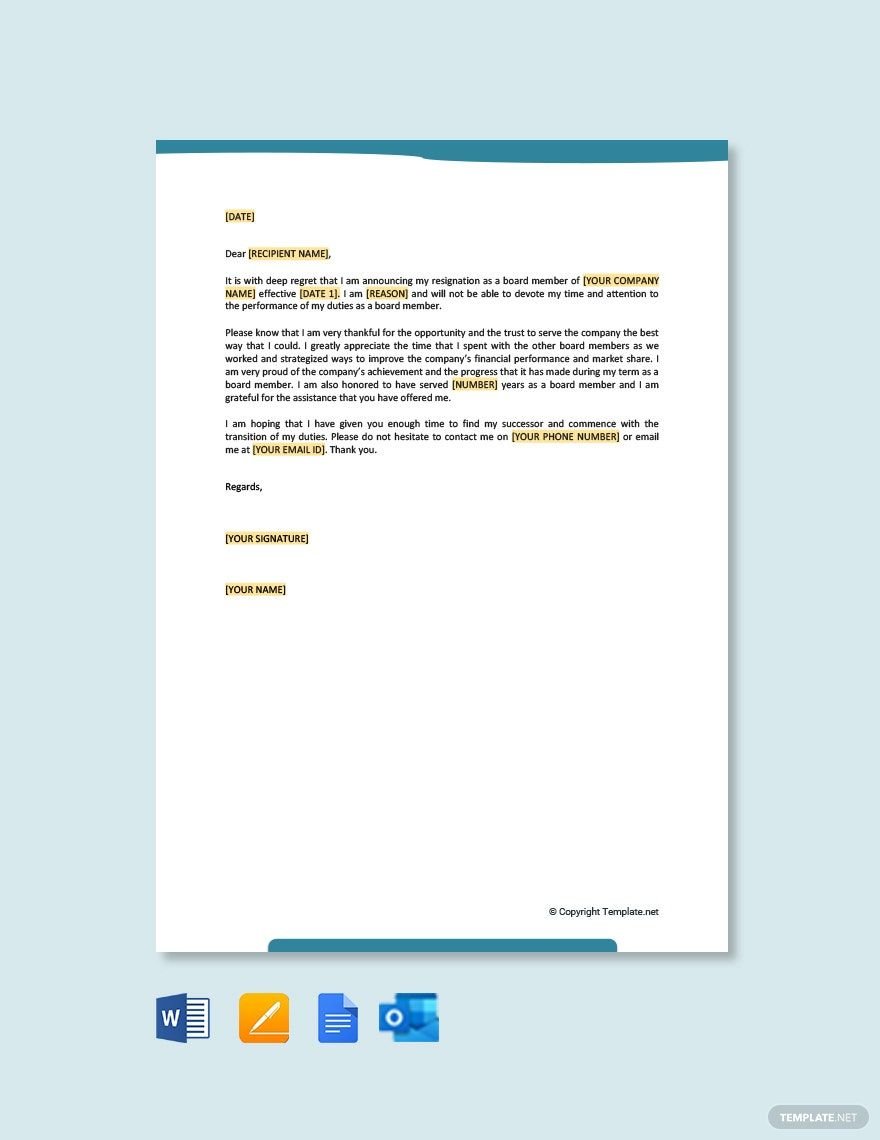
Board Membership Resignation Letter
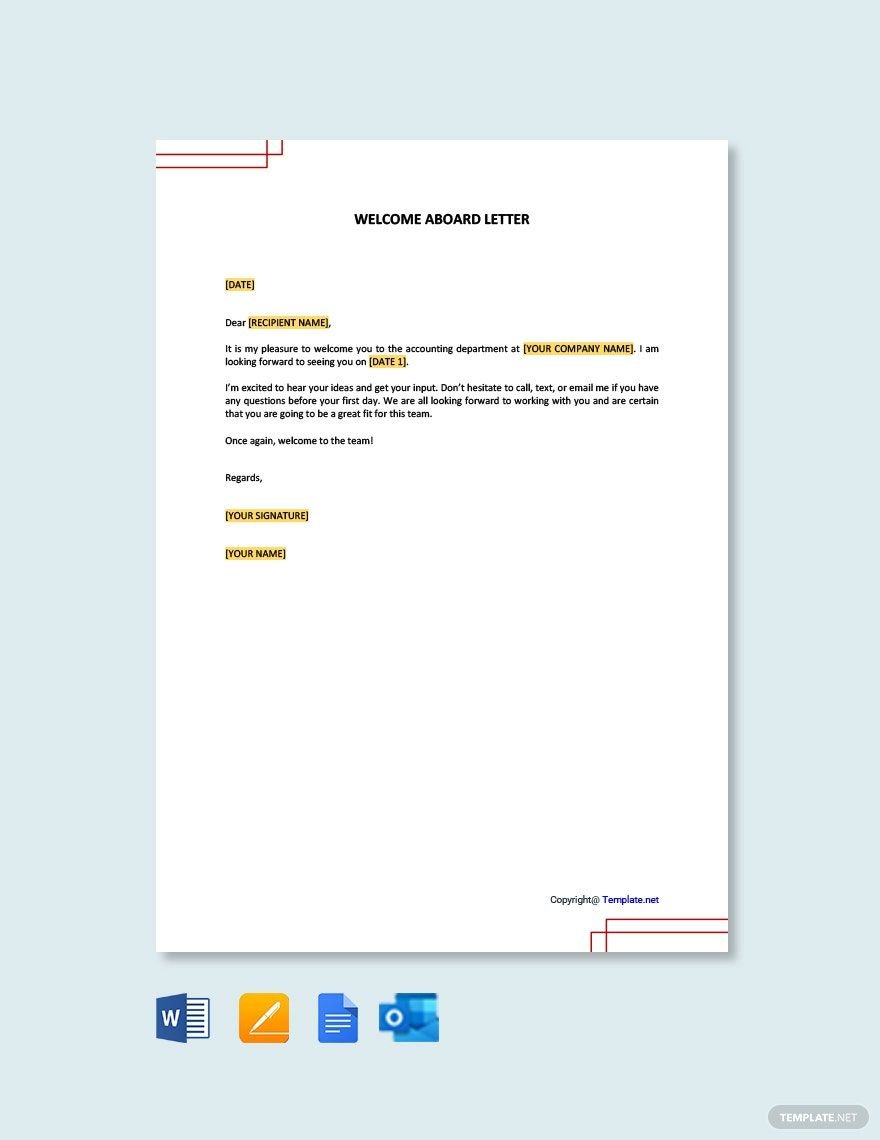
Welcome Aboard Letter
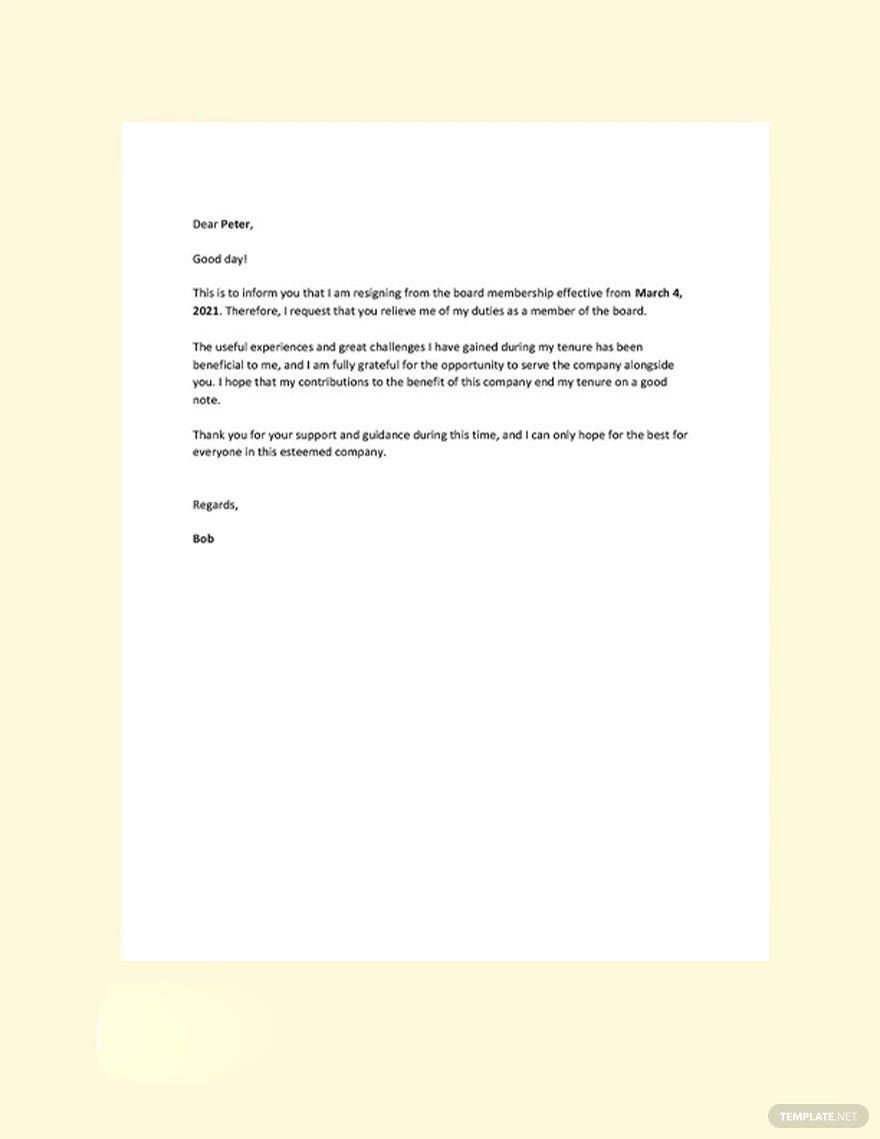
Board Resignation Letter Template
The Harvard Business Review stated that the board of directors in a company or organization carries a lot of weight. Each member advises, disciplines, decides during a crisis. Additionally, as a board member, you may need to write a letter to communicate your resignation, congratulation, or others today. A letter is an efficient communication tool for formal matters and helps you convey a well-organized message to your recipient. So, write a letter for any purpose with our collection of ready-made Board Letter Templates. You can edit, email, or print them anytime. They already have suggestive content that can help you. Download now!
A board letter is a type of letter that an organization or company's board uses. A board member can use it as a resignation letter, a holiday letter (e.g. Christmas, Thanks Giving), and others.
Whether you're a company, school, or church board member, you can follow the tips below to help you write a well-written board letter.
There can be different reasons why someone may need to write a simple letter. Maybe, you've felt the need to leave your position and decided to resign. Odds are, it's a holiday and you want to extend your greetings. Regardless, make sure that you know your main objective in writing the letter first.
Now, it's time to relay your message on the letter. Carefully identify what kind of message you need to deliver. For instance, a board resignation letter may need details such as the effective date of resignation and reason for leaving the position.
Additionally, make sure that your content is complete before you send it to avoid problems or questions from the recipient.
A formal letter has to show clarity. A clear board letter will make the letter more readable and understandable. In fact, people won't have all the time in the world to read your letter. So, to save them time, write your message clearly.
Formality is vital in any organization or company. It shows respect and unbiased language, and it means it's the perfect language to use. To keep your letter formal, write a letter without using colloquial terms or informal words.
When you want to save time but still have a professionally written letter, using a sample letter template will do. Templates are great time-savers, so they're perfect for anyone who's busy to develop a letter from scratch. We have different board letters above to choose from. Each template functions differently, so choose the letter that fits your purpose.
You can use a letter board for different fun ways. Check them out below.
A letter board has slots where a changeable letter can fit. You can arrange the letters to form words.
A writing board is a flat surface where you can write anything.
Formal letters are for business use. People in a corporate or formal setting use formal letters to communicate. These letters contain formal language and follow a particular format. Oppositely, informal letters are usually for family, relatives, or friends. Informal letters don't use formal language.
There are different types of formal letters. Read some of them below.